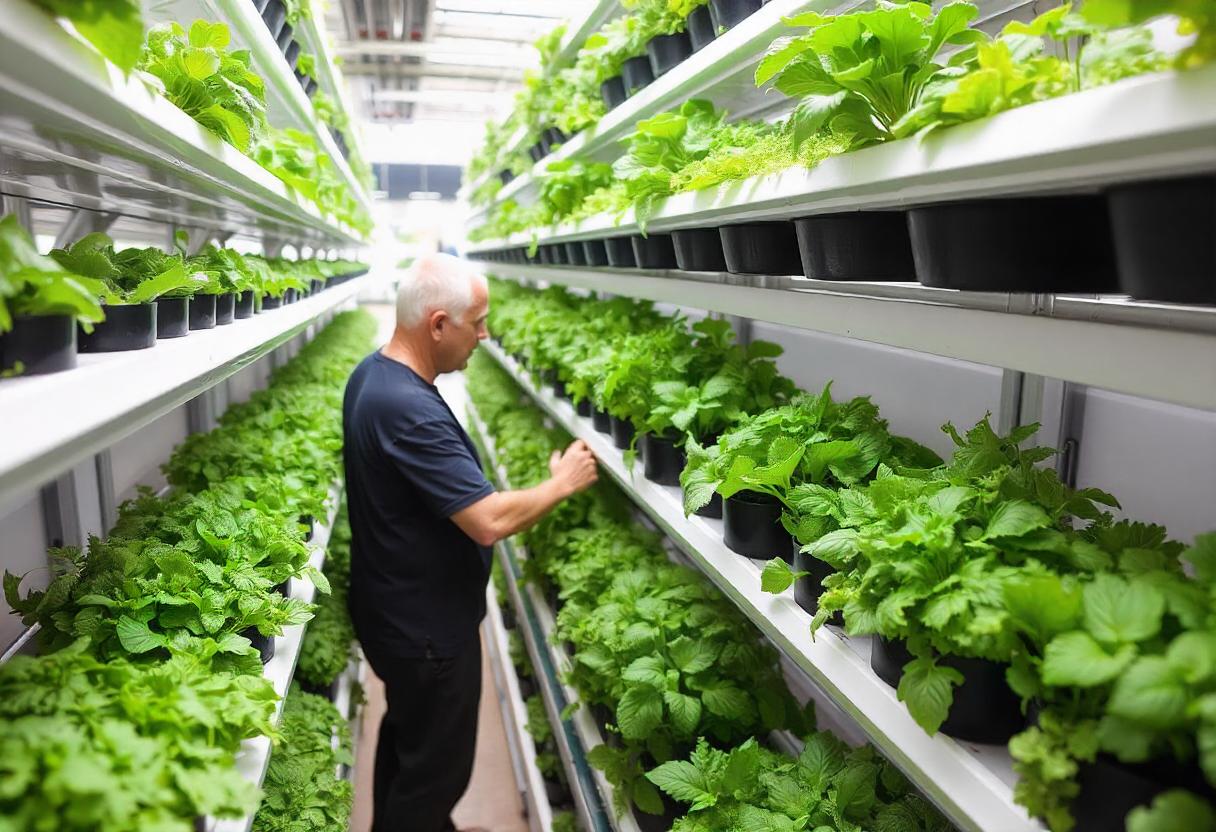
Introduction
Vertical farming is revolutionizing the way we approach agriculture by offering a sustainable and space-efficient solution to food production. As urbanization and population growth put pressure on traditional farming methods, vertical farming emerges as a promising alternative. This article explores the concept of vertical farming, its benefits, technologies, challenges, and its potential impact on the future of agriculture.
What is Vertical Farming?
Vertical farming is a method of growing crops in vertically stacked layers or inclined surfaces. This innovative farming technique can be implemented in various environments, including warehouses, skyscrapers, and shipping containers. By utilizing vertical space, vertical farming maximizes land use efficiency, enabling the cultivation of a large quantity of produce in a relatively small area.
Key Technologies in Vertical Farming
- Hydroponics: This soil-less cultivation method uses nutrient-rich water to grow plants. Hydroponics systems are highly efficient, allowing precise control over nutrients and water, which can result in faster growth and higher yields compared to traditional soil-based farming.
- Aeroponics: Similar to hydroponics, aeroponics involves growing plants in an air or mist environment. Roots are suspended in the air and regularly misted with a nutrient solution, promoting rapid growth and reducing water usage.
- Aquaponics: This system combines aquaculture (raising fish) with hydroponics. Fish waste provides nutrients for the plants, while plants help filter and purify the water for the fish, creating a symbiotic environment that reduces waste and enhances resource efficiency.
- LED Lighting: Artificial lighting is crucial in vertical farming, especially in indoor environments. LED lights provide the necessary spectrum of light for photosynthesis and can be tailored to different stages of plant growth. They are energy-efficient and have a longer lifespan compared to traditional lighting.
- Climate Control Systems: Vertical farms often use advanced climate control technologies to regulate temperature, humidity, and CO2 levels. This ensures optimal growing conditions year-round, regardless of external weather conditions.
Benefits of Vertical Farming
- Space Efficiency: By utilizing vertical space, vertical farming allows for the cultivation of crops in urban areas where land is scarce. This can help meet the food demands of growing populations without the need for expanding agricultural land.
- Resource Efficiency: Vertical farms use significantly less water than traditional farming methods. Hydroponic and aeroponic systems recirculate water, minimizing waste. Additionally, these systems often use fewer pesticides and fertilizers, reducing the environmental impact.
- Reduced Transportation: Vertical farms can be established in urban centers, close to consumers. This reduces the need for transportation, leading to lower carbon emissions and fresher produce for consumers.
- Year-Round Production: Controlled environments in vertical farms allow for year-round cultivation, regardless of seasonal changes or adverse weather conditions. This can lead to a more stable food supply and reduced reliance on imports.
- Decreased Land Use: By growing crops vertically, less land is needed for agriculture. This can help preserve natural habitats and reduce deforestation, contributing to environmental conservation.
Challenges and Considerations
- High Initial Costs: The setup of vertical farms can be expensive due to the cost of technology, infrastructure, and energy. However, as technology advances and becomes more affordable, these costs are expected to decrease.
- Energy Consumption: Vertical farming systems, particularly those using artificial lighting, can be energy-intensive. Finding sustainable and cost-effective energy solutions is crucial for the long-term viability of vertical farming.
- Technical Expertise: Operating a vertical farm requires specialized knowledge and skills in areas such as hydroponics, climate control, and pest management. Training and education are essential for successful implementation.
- Market Acceptance: Although vertical farming can produce high-quality, fresh produce, consumer acceptance and willingness to pay a premium for such products may vary. Educating consumers about the benefits of vertical farming is important for market growth.
Future of Vertical Farming
Vertical farming holds significant potential for transforming agriculture. As technology continues to advance, vertical farming systems are expected to become more efficient, affordable, and widespread. Innovations such as artificial intelligence, robotics, and advanced materials will further enhance the capabilities of vertical farms.
Governments, businesses, and researchers are increasingly investing in vertical farming as a solution to global food security challenges. By addressing the challenges and leveraging its benefits, vertical farming could play a crucial role in building a sustainable and resilient food system for the future.
Vertical farming represents a paradigm shift in agricultural practices, offering a solution to the pressing challenges of land scarcity, resource depletion, and environmental degradation. With its ability to produce high yields in urban environments, reduce resource usage, and provide fresh, local produce, vertical farming is poised to play a significant role in the future of agriculture. As we continue to explore and develop this innovative approach, vertical farming has the potential to transform our food systems and contribute to a more sustainable and resilient world.